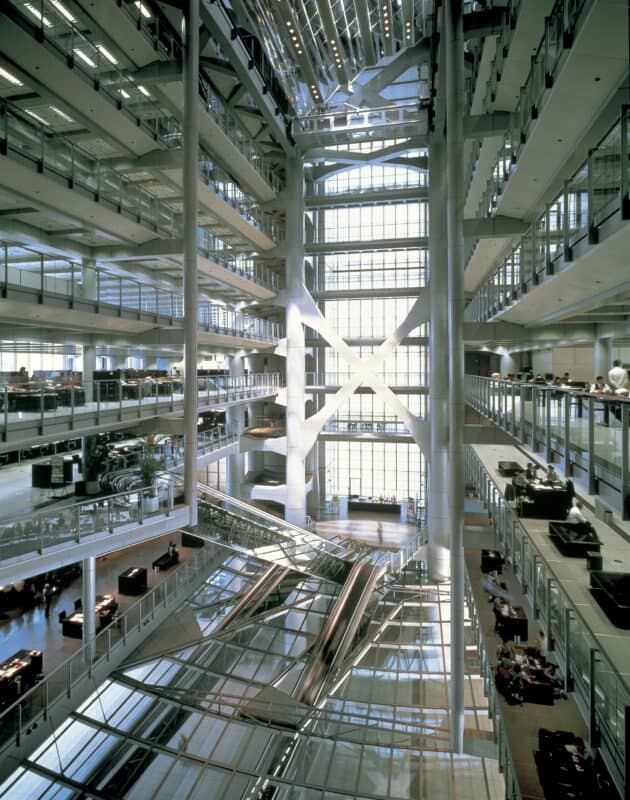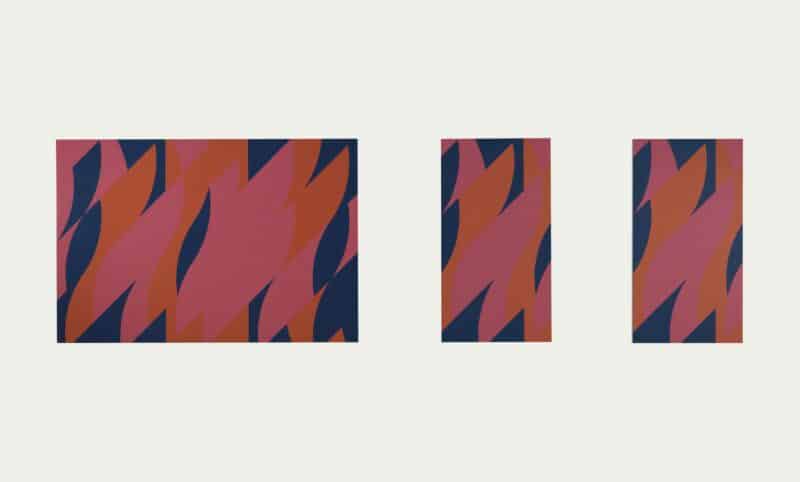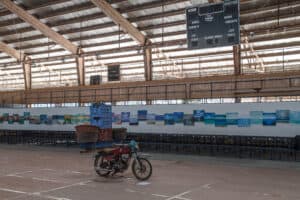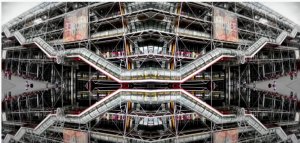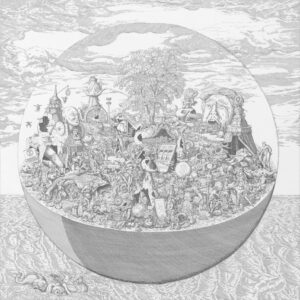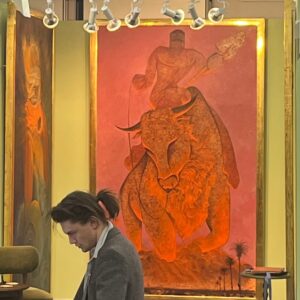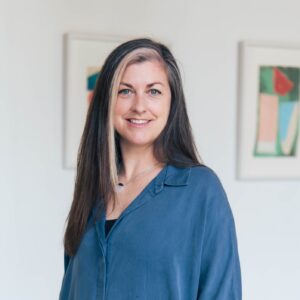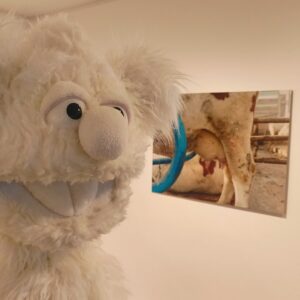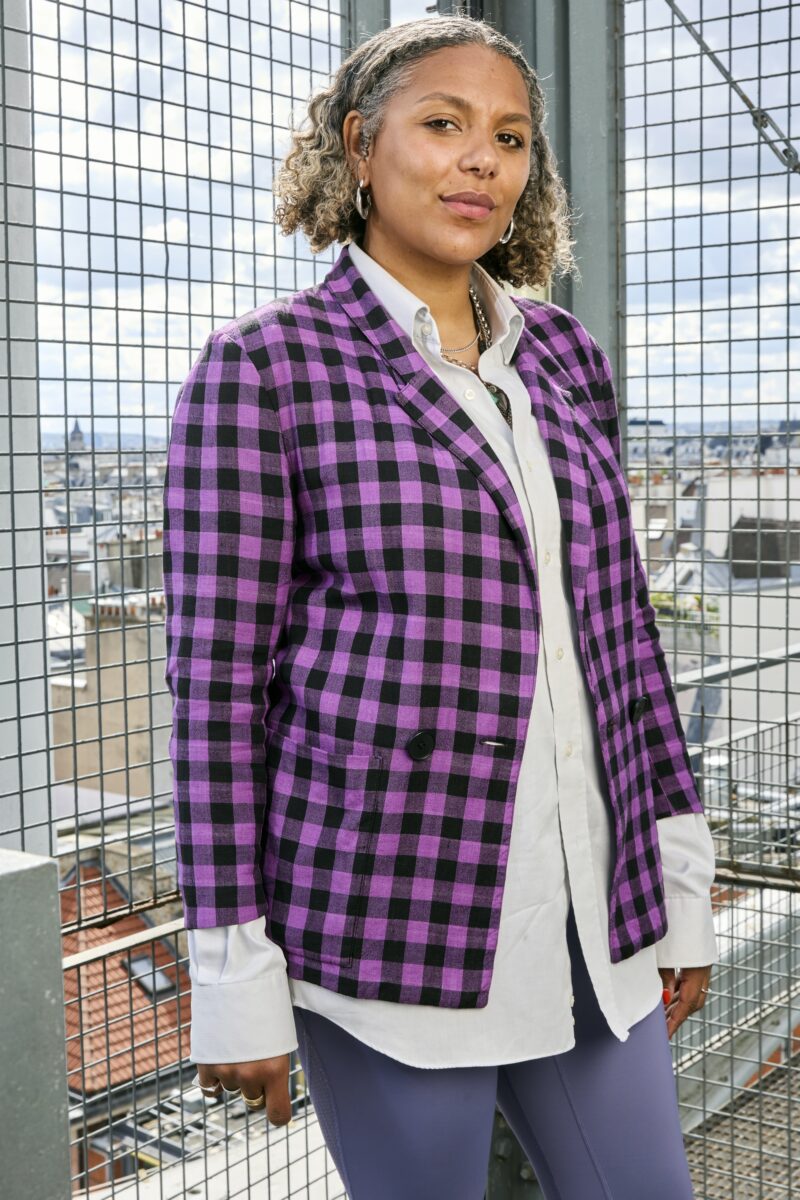
On the occasion of her winning the prestigious Prix Marcel Duchamp, Paige Miller for FAD magazine had a conversation with Gaëlle Choisne. The French-Haitian artist has made a name for herself with mixed-media installations, like the one at the Centre Pompidou that just won her the prestigious prize.
Choisne insists on not defining her practice and continues to be inquisitive about new techniques, the state of instability, and the lenses which form our worldviews. Our conversation below.
What is the impact of the award and what does it mean to you?
For me, it’s the culmination of ten years of hard work and also, what I hope will be a new start in my practice. Usually, I don’t like competition and the pressure that it can bring. At the same time, it’s also something important. This is just the beginning. Some institutions have already started to invite me to exhibitions. It’s exciting!
Can you provide some insight on your practice? How would you describe it?
My practice is quite complex and I don’t like to be categorized. I like to do what I like, but also I’m really curious about new practices that I can learn. I love learning to do new things. I start with photography though I never say I’m a photographer. I started to do some photos and mix sculptures, bodies, images and then it became installation landscapes. It’s like a natural ecosystem with multiple aspects and a lot of worlds within the world – microscopic and large scale.
Tell me a bit about the way you play with scale.
Zooming in and zooming out: we do this all the time by taking distance between what we are in comparison to the universe and coming back to something smaller than the human. We determine which distance and which perspective we can see the world or see our own experience.
I like the idea of zooming in and zooming out. You mentioned learning new things being a part of your practice. What is something new you’ve recently learned?
This year, I learned how to work with the cork. It’s like a craft – how to produce a cork floor with no resin or solvents. I also worked with glass, so I learned a bit, but it’s quite difficult. You need some practice to do it. I like to learn like that.
The cork plays such a central role in this installation, too, in the floor and the rock formations. Besides using the new material, what was your goal with this work?
The purpose was to create an optimistic image and share it. A new era just started two years ago and it means that the frequencies of the earth are going to change. This change will bring us a new attitude in more empathy, solidarity, and equality. It’s just one possible way to see the future.
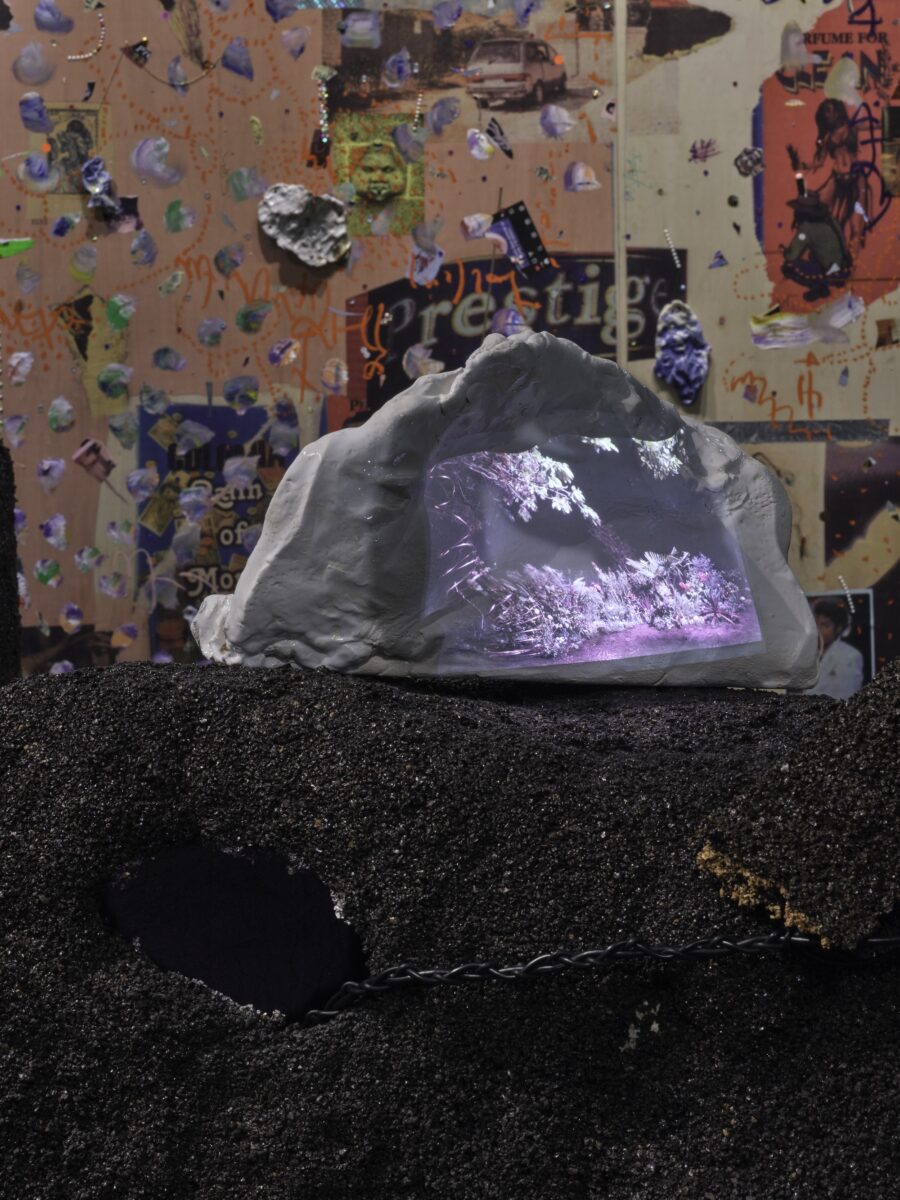
Have you done a lot of anthropological and astrological research?
I’m not a specialist; I don’t like to be a specialist of anything. I’m just inspired by a lot of things. I heard anthropologists talk about this at an event and it really inspired me.
Do you consider your work to be political?
Everything is political. It’s about the collective and even in individuality, we are political. I like to speak about different aspects of our societies and on social and anthropological and astrological levels and also philosophy. My work is not only political, it’s a mix.
What would you hope the visitor experiences through the multi-sensory aspects of your work?
I invite visitors to walk the floor as an experience. It’s super comfortable and soft, but there is also instability. It suggests something of an attitude that we can have in life between something comfortable and unstable. It’s a good experience I think, I don’t know. You want to touch and you cannot touch sometimes. It’s like a frustration, because of the rules in the museum space. You also have videos that you cannot see properly. You can sometimes grab information, but it’s blurry, so you cannot have the whole, you cannot understand everything. In life, you always meet something like this. It’s normal. This experience is also something that I like to think about and to share. You cannot access everything. Maybe you can focus on that and be frustrated or you can accept it and move on.
Do you see instability as necessary and positive, even?
I think we can learn something more when we are in an instability, it doesn’t mean we always have to be in that state. It can be tiring and it’s a lot of effort, but some steps in your life require instability. If you want to learn, if you want conscious growth, you need to be unstable. Maybe it’s something contradictory and I think it’s never really comfortable, but sometimes it’s something we can get greater comfort from.
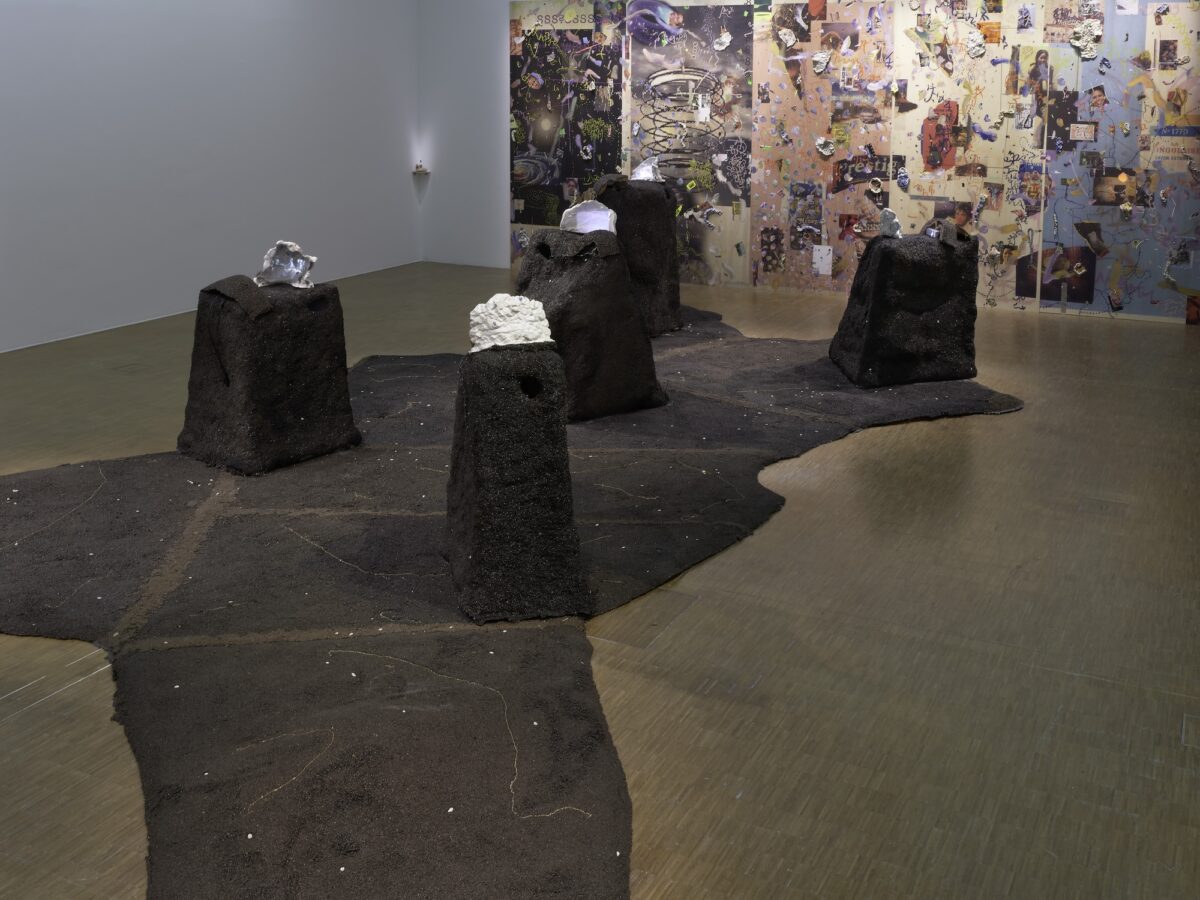
Prix Marcel Duchamp – 6th January 2025, Centre Pompidou
From 2025 to 2029, the Prix Marcel Duchamp will be presented at the Musée d’Art Moderne de Paris, as part of a partnership between Centre Pompidou, the ADIAF and the Musée d’Art Moderne de Paris/Paris Musées.
